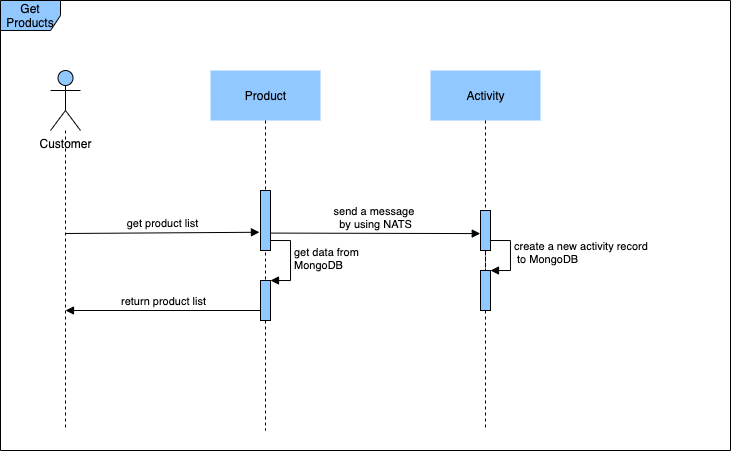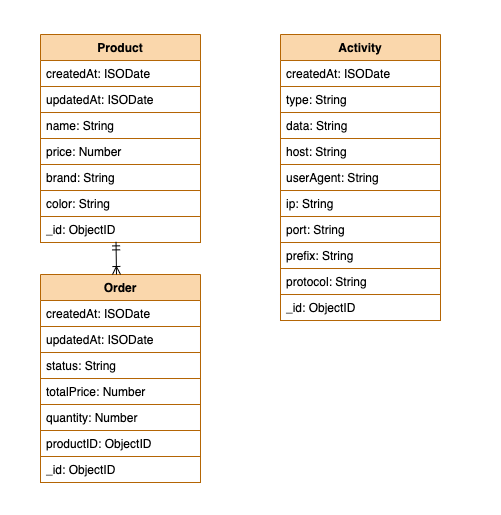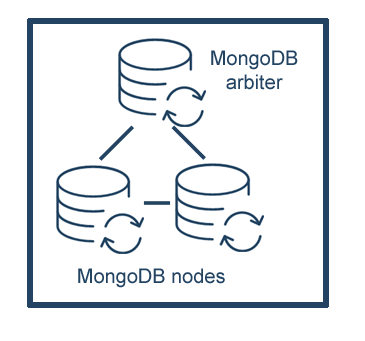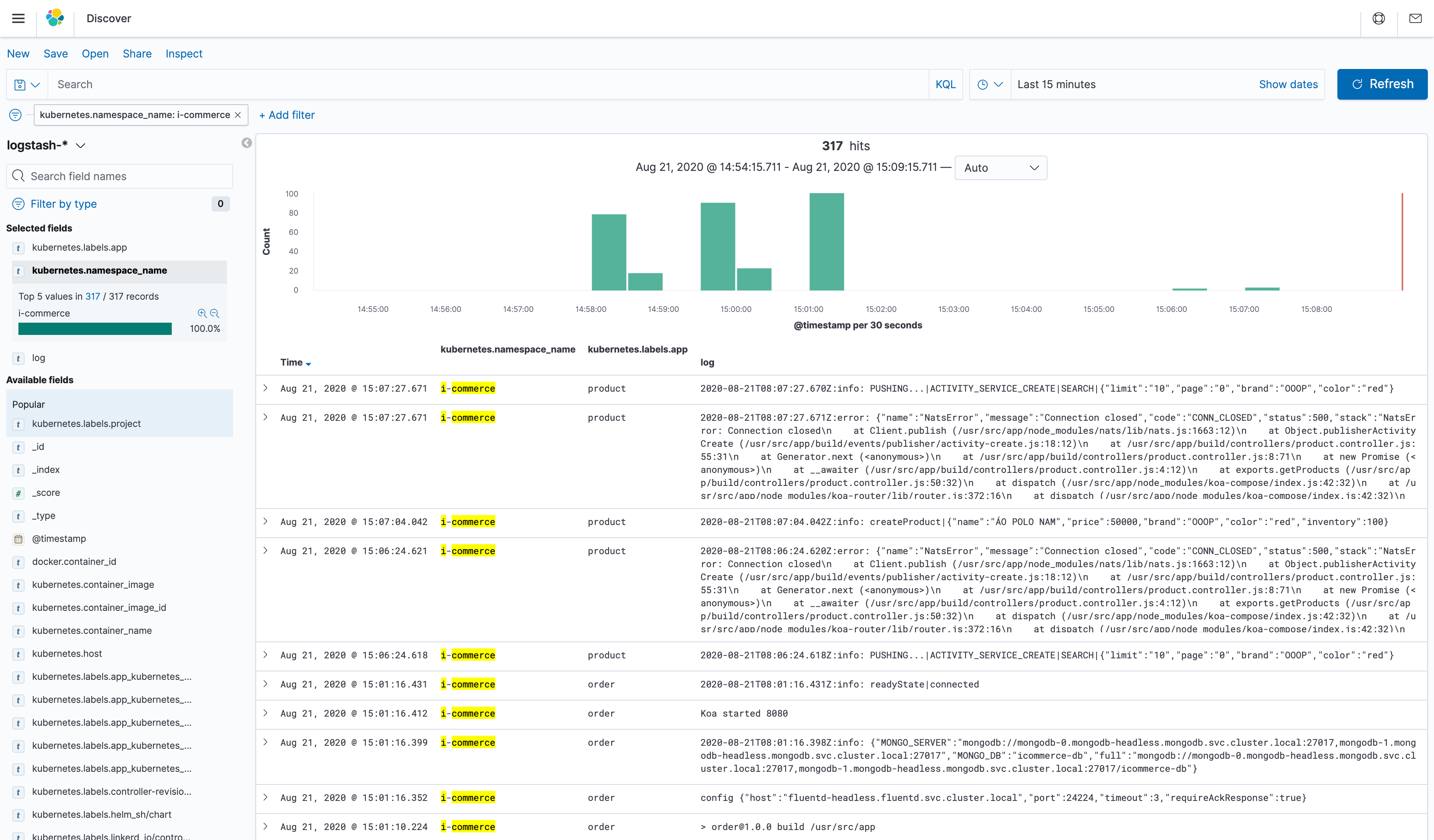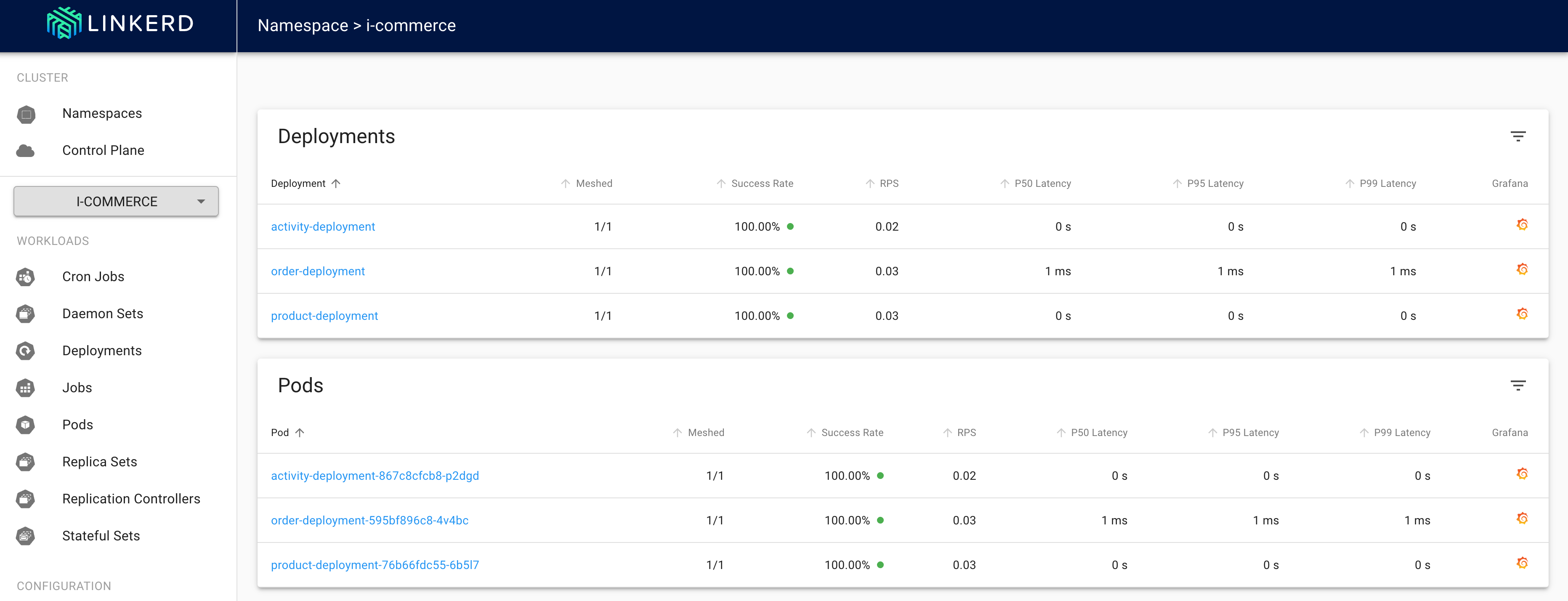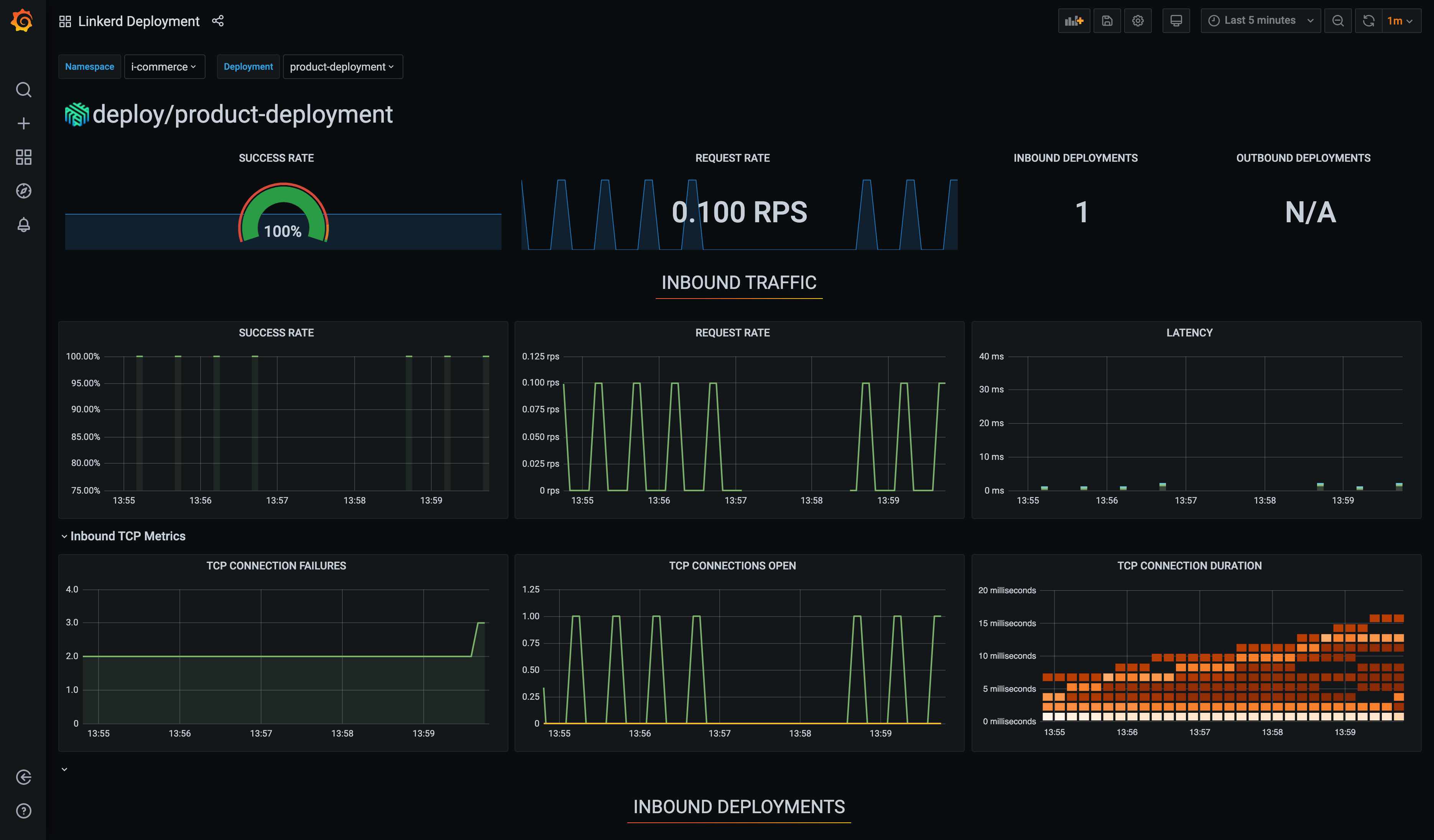An online shopping application which sell the products.
- Container Orchestration Engine: Kubernetes - Docker
- The package manager for Kubernetes: Helm
- Service mesh for Kubernetes: Linkerd
- Reverse proxy and load balancer: Traefik
- Monitoring & Metrics: Grafana, Prometheus
- Logging: Fluentd, Elastic Search, Kibana
- Message System: NATS
- Caching System: Redis
- Cert Management: Cert-manager
- Database: MongoDB
- Backend: NodeJS
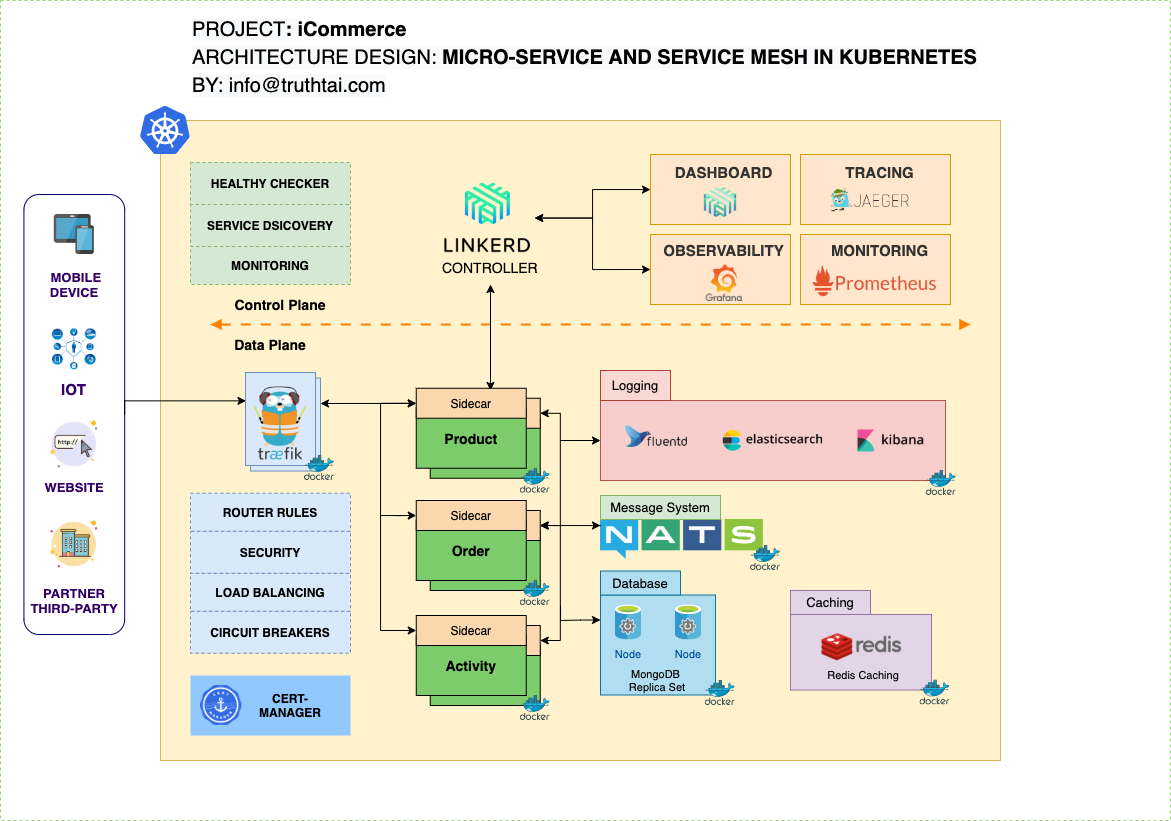 You should take a look all services at:
You should take a look all services at:
/build/base/scripts/install-deps.sh/build/base/scripts/install-services.sh
Since we use Kubernetes, the system can scale as:
- Vertical Scaling of Kubernetes Nodes
- Horizontal Pod Autoscaling
- Cluster Auto-Scaling
- Product: store all products and products' information.
- Order: store all orders' information when user places an order.
- Activity: store all searchs' information when user search, filter, detail the product.
What?
- Use a (single) database that is shared by multiple services.
- Schema-per-service – each service has a database schema that’s private to that service
Why?
- This is a good start to break the application into smaller logical pieces.
- This should not be applied for greenfield applications.
- In this pattern, one database can be aligned with more than one microservice, but it has to be restricted to 2-3 maximum.
Next steps?
- We should apply Database-server-per-service – each service has its own database server by using Helm to create many database.
- Therefore, it can be scaled, independence, and autonomy
What?
- Micro-service: NodeJS rest application. Logs will be sent to fluentd.
- Fluentd: Unify all facets of processing log data: collecting, filtering, buffering, and outputting logs across multiple sources and destinations. In our case, it will receive logs from the microservice format and forward/post them to elasticsearch.
- Elastic-search: Search engine and a full-text, distributed NoSQL database.
- Kibana: Front-end for elastic-search.
Why? Centralized logging is key to a shorter mean time to resolution (MTTR) and speedy Root Cause Analysis (RCA). Whilst logging and monitoring are usually considered to be separate topics in their own right, log event-based alerts provide a good combination.
Next steps?
- Transferring Activity's service to Elastic Search then Marketing team ( for instance ) can search, virtualize and analytic them.
What?
- Linkerd is a service mesh for Kubernetes. It makes running services easier and safer by giving you runtime debugging, observability, reliability, and security—all without requiring any changes to your code.
Why?
-
When you write a microservice the actual logic can be very minimal. The code for the service itself could be extremely simple, but when you add all the important security, observability and reliability aspects the code can balloon. All those critical aspects have nothing to do with the functionality of the service itself. They are all orthogonal operational concerns.
-
The service mesh allows the same benefits, but actually makes it easier because it can be bolted on completely transparently without changes to the application.
-
If you build and manage a large-scale cloud-native application you want, you should apply service mesh 😉
Next steps?
- Linkerd's traffic split functionality allows you to dynamically shift arbitrary portions of traffic destined for a Kubernetes service to a different destination service. This feature can be used to implement sophisticated rollout strategies such as canary deployments and blue/green deployments
- Fault injection is a form of chaos engineering where the error rate of a service is artificially increased to see what impact there is on the system as a whole.
- For production workloads, Linkerd's control plane can run in high availability (HA) mode.
├── build
│ ├── base // base configurations
│ │ ├── charts // Helm charts template
│ │ │ ├── activity // Helm chart for Activity service
│ │ │ ├── cert-manager // Helm chart for Cert Manager service
│ │ │ ├── elasticsearch // Helm chart for Elasticsearch service
│ │ │ ├── fluentd // Helm chart for Fluentd service
│ │ │ ├── linkerd // Helm chart for Linkerd service
│ │ │ ├── mongodb // Helm chart for MongoDB service
│ │ │ ├── nats // Helm chart for Nats service
│ │ │ ├── order // Helm chart for Order service
│ │ │ ├── product // Helm chart for Product service
│ │ │ ├── redis // Helm chart for Redis service
│ │ │ └── traefik // Helm chart for Traefik service
│ │ └── scripts
│ ├── dev
│ │ ├── charts // overwrite values to base charts with dev environment
│ │ │ ├── activity
│ │ │ ├── ...
│ │ │ ├── product
│ │ │ ├── traefik
│ │ ├── configs // configurations for dev environment
│ │ └── scripts // scripts for dev environment
│ └── production
│ ├── charts // overwrite values to base charts with production environment
│ │ ├── activity
│ │ ├── ...
│ │ ├── product
│ │ ├── traefik
│ ├── configs // configurations for production environment
│ └── scripts // scripts for production environment
├── diagrams
└── services
├── activity // Activity service code
│ ├── build
│ └── src
│ ├── __test__
│ ├── controllers
│ ├── events
│ │ └── subscription
│ ├── helpers
│ ├── middlewares
│ └── models
├── order // Order service code
│ ├── build
│ └── src
│ ├── __test__
│ ├── controllers
│ ├── events
│ │ └── publisher
│ ├── helpers
│ ├── middlewares
│ └── models
└── product // Product service code
├── build
└── src
├── __test__
├── controllers
├── events
│ └── publisher
├── helpers
├── middlewares
└── models
Prerequisites
Run the application
- Dev mode:
./build/dev/scripts/start.sh - Production mode:
./build/production/scripts/start.sh
NOTICE: You should modify some values in custom-values.yaml corresponding to particular services and specific environment
For Dev Mode
Please copy some visual hosts to /etc/hosts
127.0.0.1 api.i-commerce.example
127.0.0.1 kibana.i-commerce.example
127.0.0.1 traefik.i-commerce.example
127.0.0.1 linkerd.i-commerce.example
Access/API links:
- Product API: http://api.i-commerce.example/products
- Activity API: http://api.i-commerce.example/activities
- Order API: http://api.i-commerce.example/orders
- Kibana: http://kibana.i-commerce.example
- Traefik Dashboard: http://traefik.i-commerce.example
- Linkerd Dashboard: http://linkerd.i-commerce.example
Environment for a specific service in /services directory:
You should rename .env.example to .env and modify all environment variables to match to your service before running npm run dev or yarn dev
Product API
- Create Product
curl -X POST \
'http://api.i-commerce.example/products' \
-H 'Cache-Control: no-cache' \
-H 'Content-Type: application/json' \
-d '{
"name": "ÁO POLO NAM",
"price": 50000,
"brand": "OOOP",
"color": "red"
}'- Get Product by ID
curl -X GET \
'http://api.i-commerce.example/products/${productID}' \
-H 'Cache-Control: no-cache'- Search Products with filters
curl -X GET \
'http://api.i-commerce.example/products?limit=10&page=0&brand=OOOP&color=red' \
-H 'Cache-Control: no-cache'- Search Products without filters
curl -X GET \
'http://api.i-commerce.example/products?limit=10&page=0' \
-H 'Cache-Control: no-cache'- Update Product
curl -X PUT \
'http://api.i-commerce.example/products/${productID}' \
-H 'Cache-Control: no-cache' \
-H 'Content-Type: application/json' \
-d '{
"name": "ÁO POLO NAM 2020"
}'- Delete Product
curl -X DELETE \
'http://api.i-commerce.example/products/${productID}' \
-H 'Cache-Control: no-cache'Order API
- Create Order
curl -X POST \
'http://api.i-commerce.example/orders' \
-H 'Cache-Control: no-cache' \
-H 'Content-Type: application/json' \
-d '{
"productId": "${productID}",
"quantity": 5
}'- Get Order by ID
curl -X GET \
'http://api.i-commerce.example/orders/${orderID}' \
-H 'Cache-Control: no-cache'- Search Orders
curl -X GET \
'http://api.i-commerce.example/orders?limit=10&page=0' \
-H 'Cache-Control: no-cache'- Update Order
curl -X PUT \
'http://api.i-commerce.example/orders/${orderID}' \
-H 'Cache-Control: no-cache' \
-H 'Content-Type: application/json' \
-d '{
"status": "COMPLETED"
}'- Delete Order
curl -X DELETE \
'http://api.i-commerce.example/orders/${orderID}' \
-H 'Cache-Control: no-cache'Activity API
- Get Activity by ID
curl -X GET \
'http://api.i-commerce.example/activities/${activityID}' \
-H 'Cache-Control: no-cache'- Search Activities
curl -X GET \
'http://api.i-commerce.example/activities?limit=10&page=0' \
-H 'Cache-Control: no-cache'- Vault: Key Management
- Cert-manager
- Redis Caching
- GitOps - CI/CD
- SonarQube in CI/CD
- Storage Operators
- High Availability
